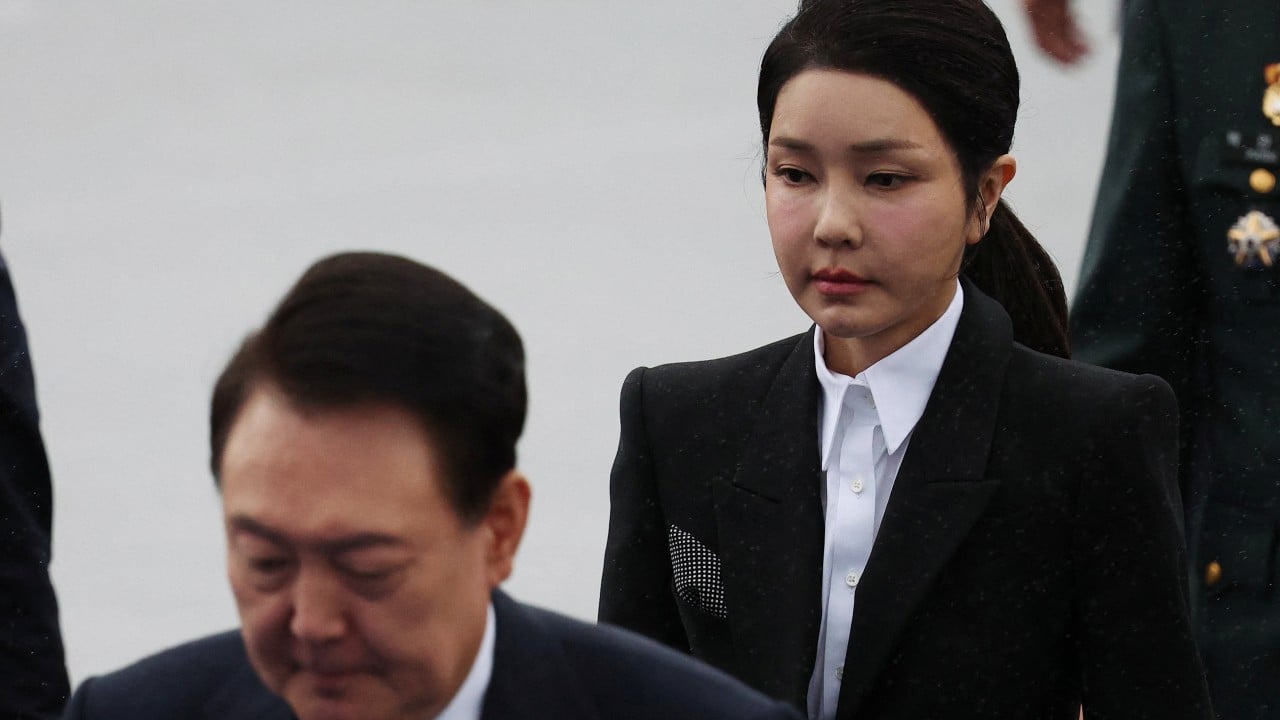Published: 12:35pm, 17 Feb 2025Updated: 12:36pm, 17 Feb 2025
South Korea’s First Lady Kim Keon-hee is facing mounting public scrutiny over her suspected involvement in the country’s short-lived martial law decree, with allegations of election meddling and text messages sent to an official on the eve of the December debacle.
Advertisement
On Sunday, the opposition Democratic Party of Korea (DPK) claimed that the looming threat of a public revelation over the first couple’s alleged interference in the nomination process for a local parliamentary by-election in 2022 had pressured now-suspended president Yoon Suk-yeol into launching the long-planned action.
The DPK is now calling for a special investigation into what prompted the martial law decree, including the possible involvement of Kim in the earlier polls.
The ruling People Power Party (PPP), however, dismissed the accusations, labelling them “fictitious” and an attempt to stir unrest.
Kim has found herself mired in controversy once again following recent revelations from Cho Tae-yong, head of the National Intelligence Service. Cho told a Constitutional Court hearing last week that Kim had sent him two text messages just before the martial law decree was issued, and acknowledged responding to her messages the following day.

He claimed that such exchanges were “not frequent” and insisted that he could not recall the content of the messages.

